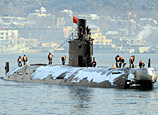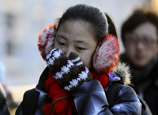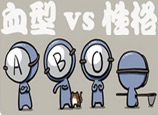
The Ministry of Commerce (MOFCOM) said Wednesday that China's substantial increase of agricultural product imports does not mean that the country is threatening global food security or that there is a threat to its own food self-sufficiency.
"The import volume of agricultural products surged, that is true, but to say that China threatens the world's food security or that China faces an issue of food security is groundless," said MOFCOM spokesman Shen Danyang at a regular press conference in response to media questions on the issue.
The Wall Street Journal and Financial Times have reported in recent weeks that record high rice imports by China have upset the global market and also raised concerns over the country's self-sufficiency in food supply.
The world's second largest economy imported nearly 14 million tons of cereal including wheat, corn and rice in 2012, up 156.7 percent year-on-year, and the import growth even reached 200.7 percent in the first 11 months, according to customs data.
The lower price of cereal in overseas markets fueled the rise in imports, Shen said.
Global cereal prices started to fall in March and April 2012 with the price of wheat and corn sliding 9.4 and 3.2 percent, respectively, in the first 11 months of 2012 from the year before and the price of rice plunging 26.5 percent year-on-year, Shen noted.
Feed stock producers increased imports of corn to replenish inventory in view of the relatively tight supply of corn at home, he said.
The low base of wheat, corn and rice imports in 2011 also made the volume of imports in 2012 seem particularly high, but the surge merely reflected market demand, Shen noted.
At the same time, China's increasing cereal imports do not pose a threat to the world's food security, Shen said, because the regulator has set a quota for imports and the overall volume of wheat, corn and rice imported in the first 11 months last year was less than half of the quota.
As the majority of rice producers are also rice consumers, it leaves limited rice available for trade. China is the world's largest rice producer and consumer, and if the country imports a large quantity of rice, it has a huge impact on the global market, the Wall Street Journal reported on January 7, saying that China almost quadrupled its imports in 2012 from the year before.
However, given that global demand for cereal slumped last year, the rise in China's imports was actually a good thing as it helped farmers in exporting countries, Ma Wenfeng, an agricultural analyst with Beijing Orient Agribusiness Consultant Ltd, told the Global Times Wednesday.
Whether China will import more wheat or corn in 2013 depends on the international price, especially the price in the US, which is the world's largest cereal exporter, Ma said.
As long as the price remains lower than the domestic one, Chinese importers will continue to buy, he noted.
















 'Sister House' case urges efforts in combating corruption in affordable housing
'Sister House' case urges efforts in combating corruption in affordable housing


![]()
